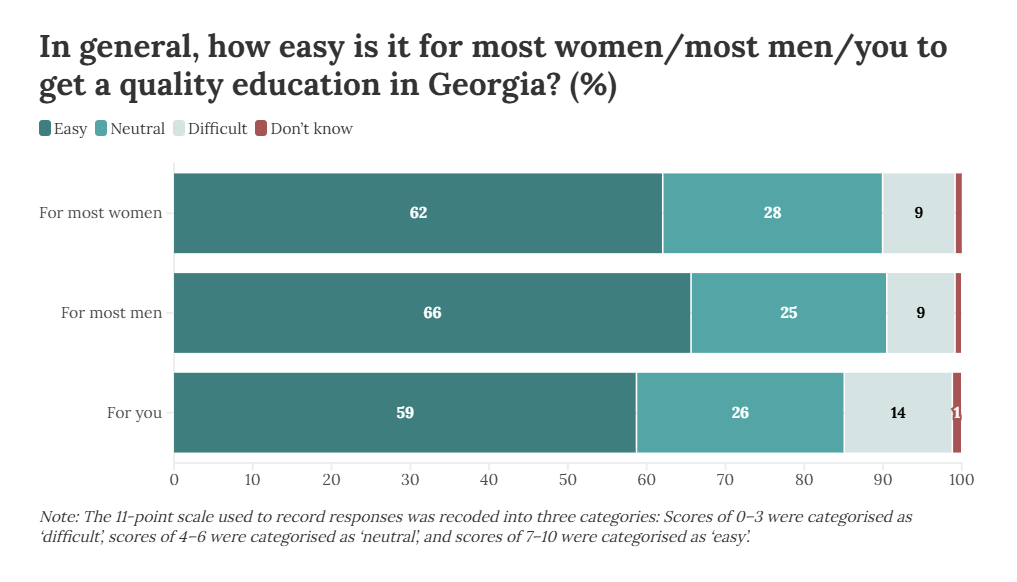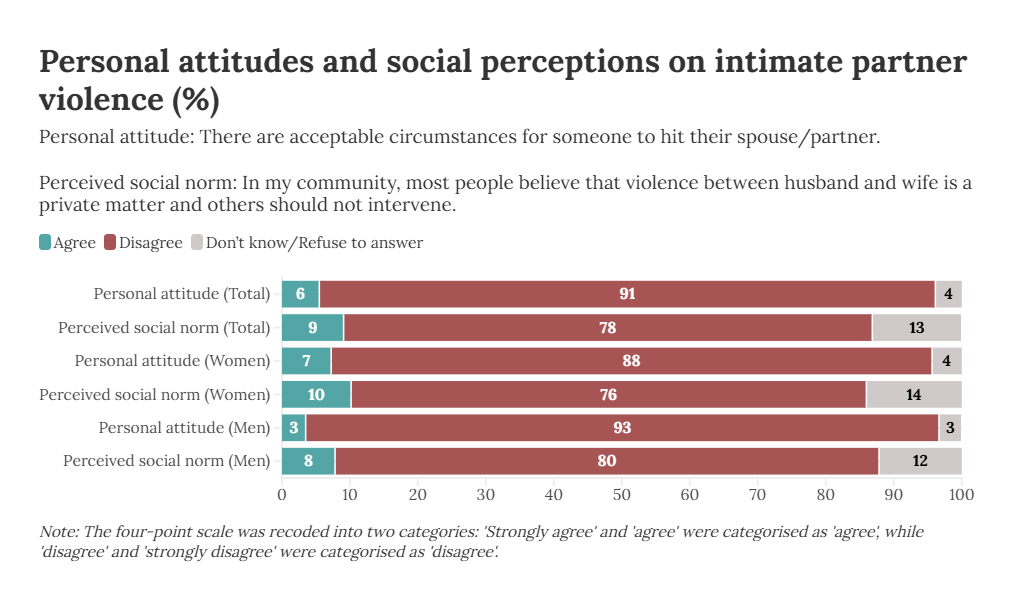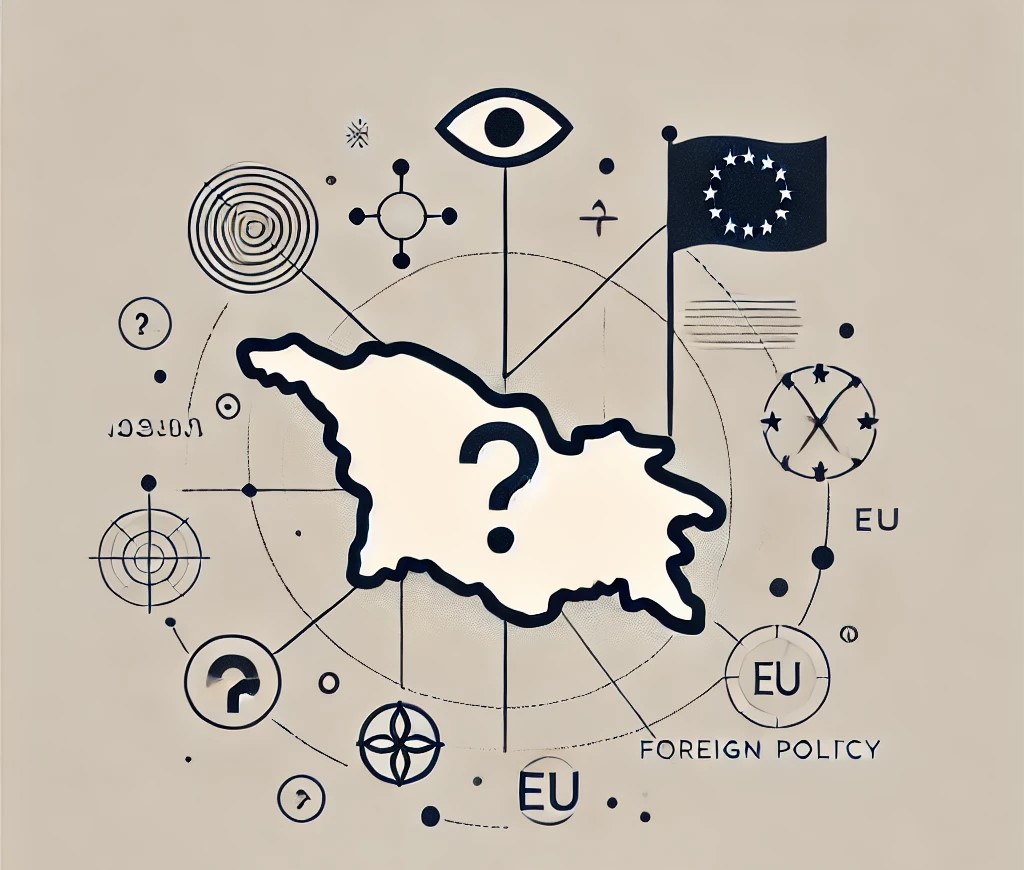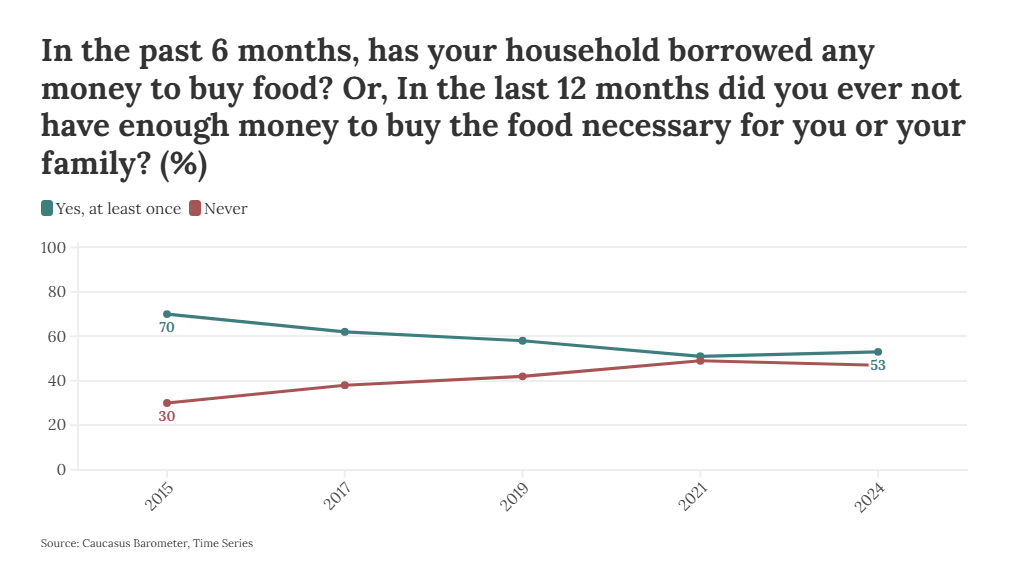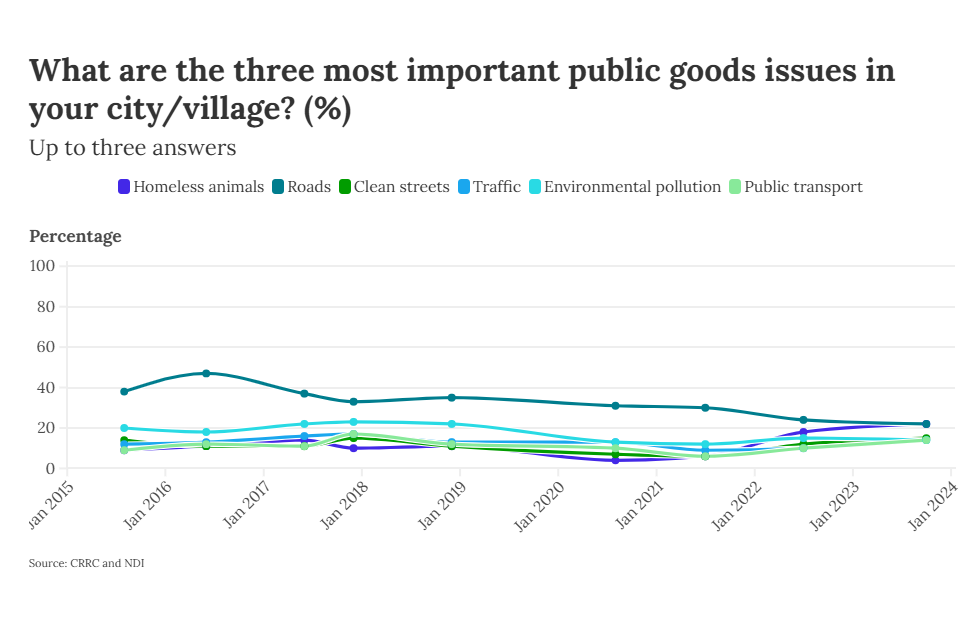Analysis of survey findings from the last few years, presented in the first part of this blog post, shows that public support for democracy is declining in Georgia. Since 2012, the share of the population who would prefer democracy over any other kind of government dropped from 68% to 47%. As public support for democracy is indispensable to democratic consolidation, it is important to know how and why support for democracy is changing. This blog post describes a number of tendencies that might be related to the declining public support for democracy in Georgia, using the CRRC’s Caucasus Barometer (CB) survey data.
One reason for the declining support for democracy may berelated tothe worsening of the public’s assessment of domestic political developments in the country. Specifically, while nearly half the population agreed with the statement that “[domestic] politics is going in the right direction” in 2011-12, only 15% did so in 2015. On the other hand, the share of the population that agreed with the statement that “[domestic] politics is going in the wrong direction” quintupled between 2012 and 2015. The share of those who agreed with the statement that “[domestic] politics does not change at all” also increased.
Note: A show card was used for this question. Answer options “Politics is definitely going in the wrong direction” and “Politics is going mainly in the wrong direction” were combined into ‘[Domestic] politics is going in the wrong direction’ on the chart above. Answer options “Politics is going mainly in the right direction” and “Politics is definitely going in the right direction” were combined into ‘[Domestic] politics is going the right direction’. “[Domestic] politics does not change at all” was not recoded. Options ‘Don’t know’ and ‘Refuse to answer’ are not shown on the above chart. CB was not carried out in 2014.
Worsening assessments of domestic political developments might also be related to an increased perception that the government treats people unfairly. The share of those who did not agree with the statement that “people like yourself are treated fairly by the [present] government” more than doubled between 2013 and 2015.
Note: Answer options “Completely agree” and “Somewhat agree” were combined into ‘Agree,’ and options “Somewhat disagree” and “Completely disagree” were combined into ‘Disagree’.
Declining trust towards important political institutions such as parliament, executive government, the president, local government and the court system, also discussed in a recent blog post, might be considered a logical continuation of the tendencies mentioned above. For instance, since 2011 the shares of those who said that they trusted executive government, parliament and local government nearly halved, while the shares of those who report distrusting these institutions increased. Although trust towards the president and court system increased in 2015 compared with 2013, it is still lower than in 2011. This is a serious problem, because trust in political institutions is crucial for the maintenance and consolidation of democracy.
Note: Answer options “Fully trust” and “Rather trust” were combined into ‘Trust’, and options “Rather distrust” and “Fully distrust” were combined into ‘Distrust’. Options “Neither trust nor distrust”, ”Don’t know” and ”Refuse to answer” are not shown on the chart.
Trust in political institutions not only can strengthen democracy, but can also make governance more effective and cost-efficient. Declining trust towards major political institutions could impede Georgia’s stable development. Thus, it is of high importance to regularly monitor changes and analyze their causes. Since the causes of social change are usually complex, further, more focused research is needed on the issues highlighted in this blog post, with the eventual goal of improving the performance of major political institutions, leading to the population’s increased trust in these institutions.



